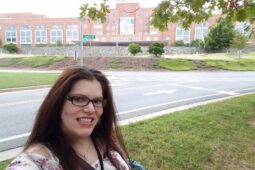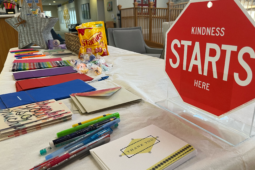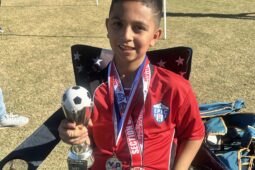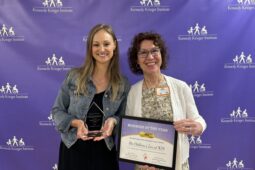For Andres, The People Make the Place
Bone marrow transplant knocks out t-cell non-Hodgkin’s lymphoblastic lymphoma
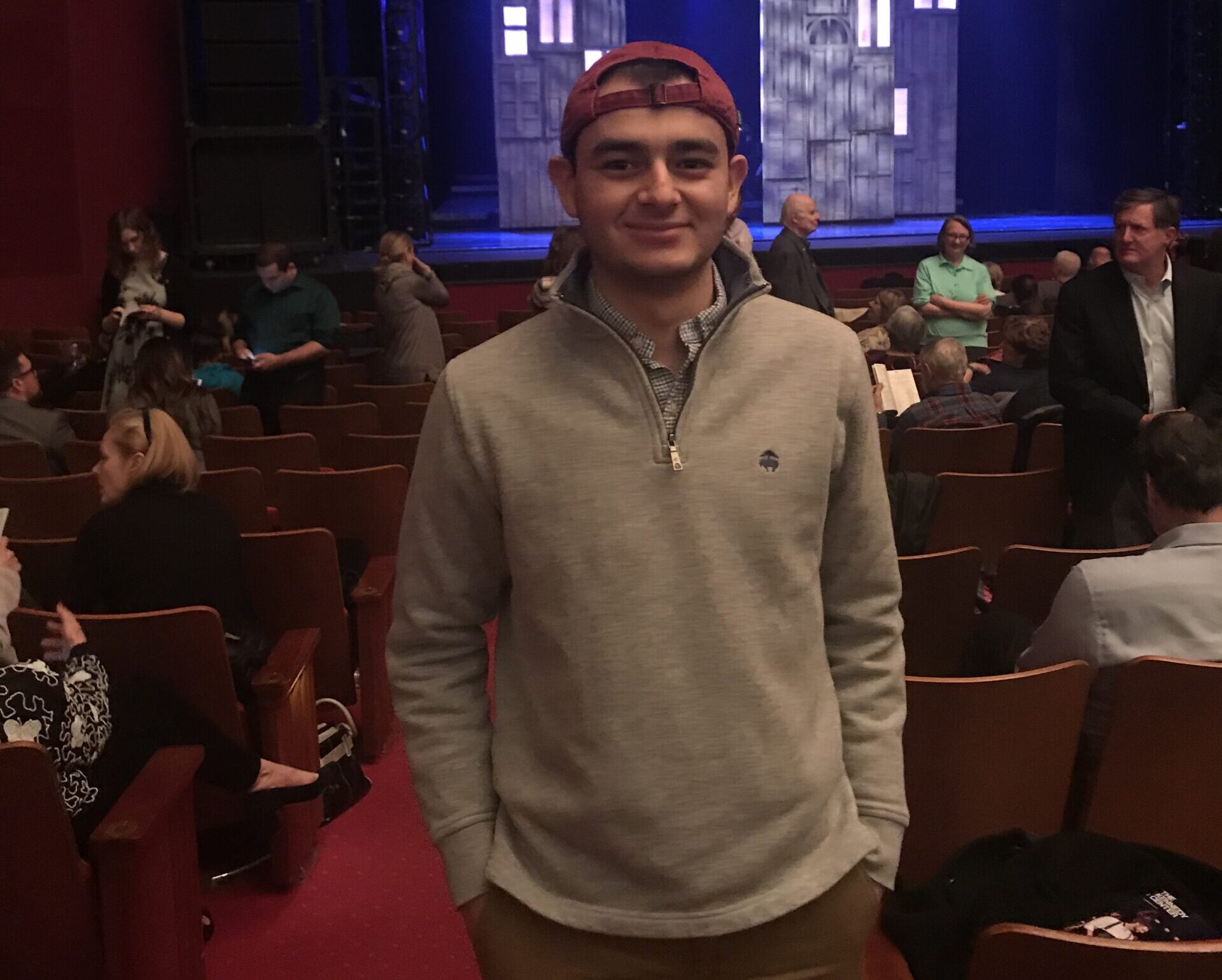
Andres was a 20-year-old college student back in September 2016. The native of El Salvador was between his first and second years at Bates College in Lewiston, Maine, and was back home working for a think tank when he felt something was wrong.
“I felt a lump on my neck,” he remembered. “It was a swollen lymph node. I got myself checked, and I was diagnosed with T-cell non-Hodgkin’s lymphoblastic lymphoma. It was pretty rare because the T-cells are supposed to fight the cancer, not be the cancer.”
Andres, a political science and economics major at Bates, had to put his entire life on pause. A challenging prospect for any college student, it was even more difficult for Andres, who only had a student visa to the United States.
At home at the time of his diagnosis, Andres began receiving chemotherapy treatments in El Salvador, taking a medical leave from Bates to do so. “It was awful,” he recalled of the treatments he had to undergo. “But they thought I had beat it.”
Indeed, Andres was showing significant signs of improvement after the initial round of chemo and was sent back to the United States for a PET scan to confirm that the cancer was gone from his body. Unfortunately, it did just the opposite. The scan confirmed that Andres had relapsed, and doctors told him that he would need a bone marrow transplant.
“There was no place to get a bone marrow transplant in El Salvador,” Andres explained. “The closest place to home would be Colombia or Brazil, and that was a difficult situation.”
His father managed to secure humanitarian insurance for Andres, allowing him to return to the United States, where he underwent several months of treatment at the University of Miami. Once again in remission, he still needed the transplant, and by that point, the insurance had run out.
“I had already been in contact with the NIH, but they only had a protocol to see if my brother was a full donor,” Andres said. “He wasn’t. But I stayed in contact, and they offered to look in the registry to see if they could find a donor.”
Though he was not yet formally enrolled in any NIH protocol, the contacts he had made there could locate several matches for Andres. He remembered hearing back from them with that news, a phone call he described as “a real wow.” With a match secured, Andres was enrolled in a protocol investigating the side effects of the transplant. He was flown to Bethesda, where he stayed with his mother at The Children’s Inn throughout the process.
The transplant, conducted in 2017, went smoothly, and Andres recovered at The Inn. “I couldn’t go home because there were no doctors who could treat me there or researchers in case I got side effects,” he explained. “So I stayed at The Inn for nine or 10 months. There was a point where I was only seeing doctors every couple of weeks, but The Inn was a place where I could stay in the United States. It was wonderful.”
Andres made the most of his time at The Inn. A sports fan, he took part in all the programming opportunities he could, especially trips to Washington Nationals, Washington Capitals, and Maryland Terrapins games. In particular, he became a lifelong fan of the Capitals and Commanders – though he stops short of taking credit for the Caps’ Stanley Cup win during his time at The Inn.
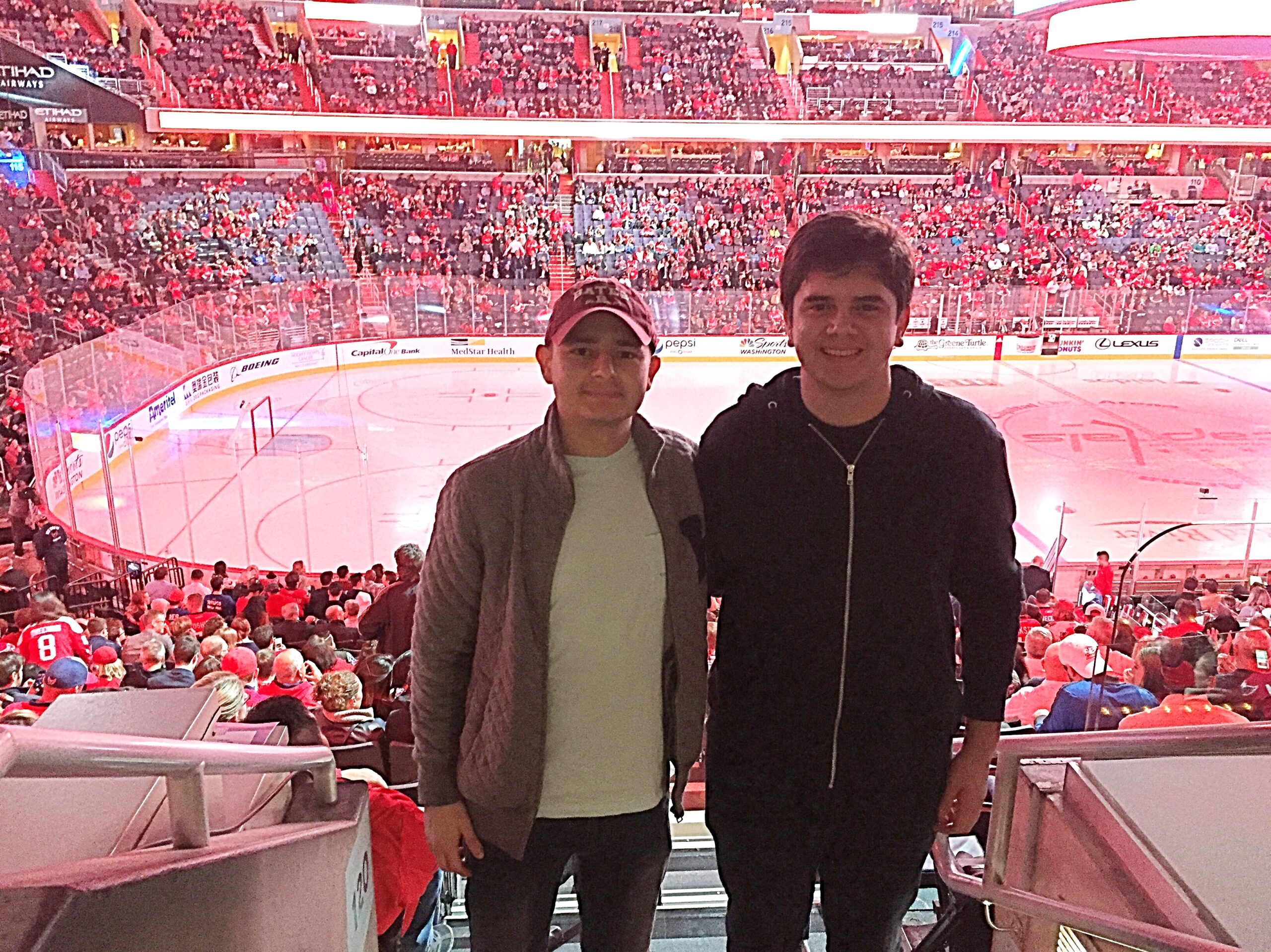
Andres (left) attends a Washington Capitals game
Before his diagnosis, Andres had adjusted well to life in Lewiston, a small town in Maine nearly 4,000 miles from home. “The weather was pretty extreme, but I loved every second of it,” he smiled. “I had never seen snow before. It’s still pretty cool [for me]. I ended up having two years of medical leave, so I have friends from all different years at Bates.”
That attitude carried over to his time at The Inn, where he made many friends and busied himself with as many activities as possible. “We called each other ‘The Transplant Class’ because a lot of young adults went in at the same time for different protocols. At a certain point, it felt like what was happening to me was kind of normal. I made a lot of friends, and you could empathize with people, and they knew what you were going through. The Inn provided that opportunity.”
Proving to be ‘A Place Like Home’ for Andres with its warm and welcoming character, The Inn was soon also emulating Home in its willingness to lend support as he got back on his feet. After a short return to El Salvador, during which he got a fungal infection, Andres returned for regular check-ups at NIH, and before long, doctors recommended that he go back to school. Thanks to The Inn, he was ready.
“The Inn helped with my educational journey. I wanted to learn French [while I was at The Inn], so I received tutoring. And The Inn’s Enrichment Fund helped in many different ways.”
Still ambitious despite the obstacles he had overcome, Andres earned an unpaid internship in Washington through his political science program. Through The Inn’s Enrichment Fund, Andres was able to get help paying his rent during the internship, keeping his career on track.
The following summer, with COVID-19 now providing another challenge, Andres interned at an investment bank in New York City. Working from home, he benefited again from the Enrichment Fund as it provided a computer monitor and other equipment to help him set up his dorm room for his new job.
Andres graduated from Bates and moved to New York City, adding the metropolis to his wildly varied residences throughout his young life. He recently started a new job in the financial services industry and is celebrating six years cancer-free since his bone marrow transplant. An engaging and energetic young man, he credits The Inn with getting him back on his feet.
“The Inn felt like somewhere I could be comfortable. And my mom felt so at ease. We were going into something completely unknown, and now we still keep in touch. It’s the people that make the place.”
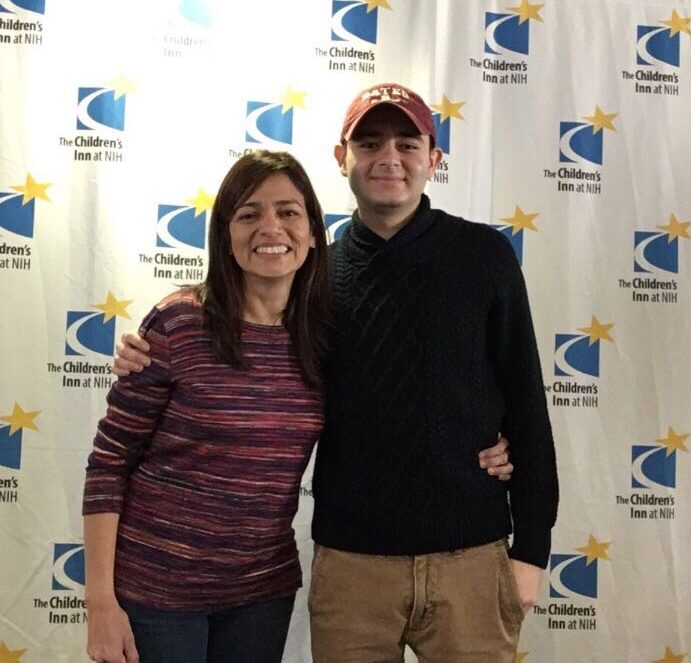
Andres and his mother at an event for The Inn

